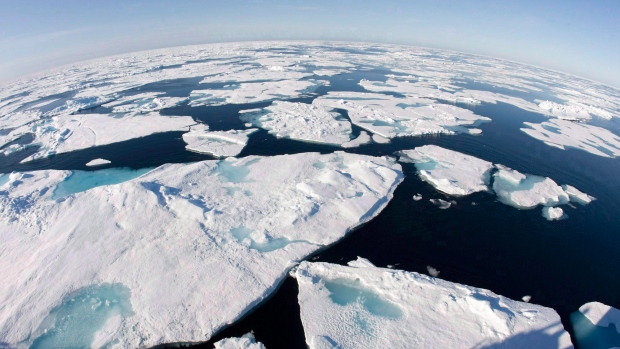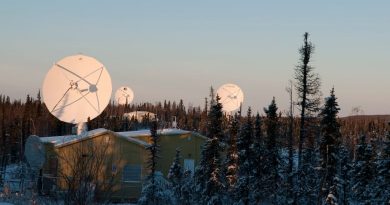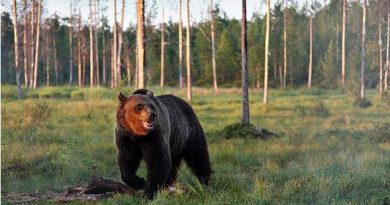Arctic countries ban fishing around North Pole

Decades ago, fishermen, fishery managers and environmentalists from Alaska and the Soviet Union put aside their nations’ differences to try to stop uncontrolled high-seas pollock catches that were imperiling stocks throughout the Bering Sea.
That effort led to a 1994 international agreement that banned fishing in the Bering Sea “Donut Hole,” an international area lying between U.S. and Russian territorial waters.
Now the United States and Russia, along with the governments of Canada, Norway and Denmark/Greenland, are trying to accomplish something similar in the Arctic Ocean, another area of international waters with no controlling authority.
Vessels to stay out of central Arctic Ocean
On Thursday, the five nations signed a declaration promising that their fishing vessels will stay out of a 1.1 million-square-mile zone in the central Arctic Ocean, an area bigger than the Mediterranean Sea. National representatives met in Oslo to sign the agreement, the product of several years’ work. The declaration says those nations will refrain from fishing the area until there is better scientific knowledge about the marine resources there and until there is a regulatory system in place to protect those resources.
There is no commercial fishing by any nation’s fleet in the Arctic donut hole — for now. But as pack ice has retreated, the area of the Arctic Ocean once frozen over year-round has been exposed to the potential of commercial fishing. Scientists are particularly concerned over Arctic cod, a species crucial to the region’s ecosystem. Arctic cod stocks are already precarious in some areas, and scientists fear the fish will be targeted for use as fishmeal to quench booming demand for feedstock for large-scale fish farms.
‘Preventive policy’
Thursday’s declaration is intended as a preventive policy, unlike the situation in the Bering Sea, where the fishing ban was not put into place until after catches by Japanese, Korean, Polish and Chinese fishing vessels caused long-lasting damage.
“It’s a lot harder to stop when the fishing’s already going on,” said Scott Highleyman, international Arctic director for the Pew Charitable Trusts, one of the non-governmental organizations supporting the effort.
The declaration also shows that the U.S. and Russia can cooperate to protect the Arctic, despite strained relations on other issues.
“In the Arctic, the United States and Russia have been able to reasonably stay the course and work together,” said David Benton, a member of the U.S. Arctic Research Commission and a longtime Alaska fishery manager.
Next: China, South Korea, Japan
But the five nations — the only nations with territory bordering the central Arctic Ocean — still have a lot of work to do to get the rest of the world onboard a binding agreement. In particular, they’ll need participation from China, Korea and Japan, home countries of pollock-fishing ships operating in the Bering Sea donut hole decades ago.
“The declaration is a first step. It’s not an end-all or be-all,” Benton said.
Long history
Thursday’s declaration has been long in the works.
Momentum started at least as far back as 2007, which was at the time a record-low year for Arctic sea ice extent. The late Sen. Ted Stevens of Alaska sponsored a Senate resolution that directed the government to start work on an agreement to prevent commercial fishing in the Arctic Ocean’s international waters. The resolution became law in 2008.
In 2009, the U.S. — through action by the North Pacific Fishery Management Council — put its own Arctic waters off-limits to commercial fishing. The new program did not affect the very small-scale fisheries that already existed in Arctic Alaska’s marine waters.
The following year, the U.S., Russia, Canada, Norway and Denmark/Greenland began the process of creating an international fishing moratorium, an effort endorsed by 2,000 scientists in 2012.
Alaska experience
In some ways, the path was laid much earlier.
“The experience Alaska has had with the Bering Sea donut hole back in the 1980s really influenced how Alaska and the Alaska seafood industry looked at how developments are unfolding in the Arctic Ocean,” said Benton, who was lead negotiator for the state of Alaska in the “protracted” process that resulted in the fishing moratorium for the approximately 50,000-square-mile Bering Sea donut hole. “We just did not want to have a repeat of that experience that we had in the Bering Sea,” he said.
It was difficult at that time to get attention for the issue from federal officials, he said, so a couple of Alaska fishermen chartered a plane to see for themselves what was happening in international waters of the Bering Sea. The two saw “literally close to 100 vessels” fishing in the waters between the U.S. and Soviet exclusive economic zones, Benton said.
At the time, the Soviet Union under Mikhail Gorbachev was entering its glasnost period, and relations across the Bering Strait were thawing. Closing fishing in the Bering Sea donut hole was one of the first cooperative accomplishments of that time, Benton said.
U.S.-Russia cooperation
Now, decades later, some U.S.-Russia cooperation is being employed in work toward a wider binding agreement on the Arctic donut hole.
The subject was raised at a January conference in Shanghai that was attended by U.S. and Russian officials. Government officials and Arctic experts from China — a nation with ambitions of becoming a major player in international Arctic management, commerce and research — were receptive to the idea, Benton said.
“They saw the point,” he said.
Related stories from around the North:
Canada: Is a fishing boom in the Arctic a sure thing?, Eye on the Arctic
Finland: EU drops seal-protection complaint against Finland, Yle News
Greenland: The donut hole at the centre of the Arctic Ocean, Blog by Mia Bennett
Norway: Norway-Russia fishery expedition finds abundance of cod, decline in other species, Barents Observer
Sweden: Record numbers for Swedish wild salmon, Radio Sweden
Russia: Oryong 501 sinking highlights Arctic fishing, shipping issues, Blog by Mia Bennett
United States: Ice retreat threatening Bering Sea pollock, Alaska Public Radio Network



